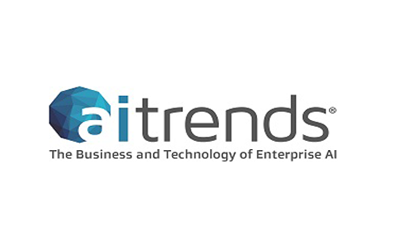Achieving Innovation at Scale with AI

Scheduled for April 2, 2020, 1 pm to 1:30 pm EDT
REGISTER
While the power and promise of AI is exciting, organizations are challenged to successfully transition past proof of concepts to production and scale. Applications based on artificial intelligence (AI), machine learning, and continual deep learning are transforming how consumers, enterprises, and agencies work, learn, and interact. Data is the core of the new digital economy and needs to be managed from edge to core to cloud, analyzed in near real time for insights and responsible and ethical action to affect outcomes. AI algorithms need 8-10 times the volume used for traditional analytics, and effectiveness depends on high quality, diverse, and dynamic data inputs. Historically, data analytics centered around large files, sequential access, and batched data. Today, data consists of small to large files and structured, semi-structured, and unstructured content. Additionally, data is increasingly becoming distributed across on-premises, colocation, and hybrid cloud environments. IDC predicts that by 2025, more than a quarter of the global data set will be real time in nature.
Challenges to government in operationalizing and scaling AI include evolving IT infrastructure components for digital transformation, reengineering agency workflows and processes for cloud computing, training employees on using and interacting with AI, and addressing the impact of AI on jobs and skills. Also, agencies must decide who owns the data, develop data management and governance strategies, organize stakeholders in addition to CDO’s to determine roles of each team member within the organizational structure. It is of utmost importance that agencies also create policies to ensure responsible and ethical AI, leverage industry partners, and deploy best practices.
Due to the complexity and resources required for AI solutions, AI model creation is time intensive, expensive, experimental, and often “one-off” solutions. Most organizations struggle through proof of concepts and only a few have made it beyond the incremental benefits of a single business process to full production agency wide. For many agencies, getting to innovation at scale is the next major obstacle to be overcome.
Learning Objectives
- How public sector agencies can scale AI and intelligent automation to meet their critical agency objectives
- How innovative agencies are moving from pilots to production with AI today
- What strategies agencies can deploy to accelerate the use of AI in their digital transformation plans
Speaker:
Scott Lundstrom, Group Vice President and General Manager, Software Research, IDC
Scott Lundstrom is a long-time industry analyst focused on the transformative and disruptive nature of technology. Mr. Lundstrom has been focused on IT driven business innovation and change in a variety of industries and settings. Mr. Lundstrom is an expert on the emerging third platform, and speaks regularly on the future of cloud, analytics, AI, mobility, and social media to digitally transform and radically alter the process and services offered to customers in the marketplace.
Prior to joining IDC, Mr. Lundstrom was the Senior Vice President of Research and CTO of AMR Research. At AMR Mr. Lundstrom Managed the industry research practice and supported a number of specific vertical industries. Mr. Lundstrom also specialized in work with clients facing platform and infrastructure decisions in regulated industries including aerospace and defense, insurance, financial services, and life sciences.
